The price of a wedding dress can range widely depending on several factors including the type of dress, materials used, and designer. Off-the-rack dresses offer a budget-friendly option with ready-to-wear convenience. Mid-range dresses strike a balance between quality and cost, featuring designer elements without the high price tag. High-end designer dresses deliver luxury and sophistication with premium fabrics and craftsmanship. Couture and custom-made dresses provide a one-of-a-kind gown tailored to the bride’s exact specifications, though at a higher cost. Understanding these price influences helps brides choose a gown that fits their style and budget while ensuring they look stunning on their special day.
When it comes to the price of wedding dresses, several factors can influence the overall cost, ranging from fabric choices to designer labels. Here’s an overview of the general pricing:
1. Budget/Off-the-Rack Dresses:
- Price Range: $100 – $800
- Description: These dresses are often mass-produced and available in bridal stores or online. They tend to be simpler in design but can still offer beautiful styles.
- Best for: Brides looking for affordable, ready-to-wear options.
2. Mid-Range Dresses:
- Price Range: $800 – $3,000
- Description: This is the most common price range for wedding dresses. It includes many well-known designers and offers a variety of fabrics, lace, and detailing. These dresses are often semi-customizable.
- Best for: Brides seeking quality, unique designs without going over budget.
3. High-End Designer Dresses:
- Price Range: $3,000 – $10,000+
- Description: Dresses in this range are often custom-made or designed by high-fashion designers. They use luxurious fabrics and intricate hand-crafted details.
- Best for: Brides looking for exclusive, high-fashion, or couture gowns.
4. Couture/Custom-Made Dresses:
- Price Range: $10,000 – $100,000+
- Description: Custom-made wedding dresses are entirely tailored to the bride’s specific preferences and body shape. They offer the highest level of customization, often including multiple fittings and unique fabric choices.
- Best for: Brides looking for a completely personalized and unique gown.
Other Factors That Influence Price:
- Fabric: Silk, lace, satin, and tulle are common fabrics, with silk and lace typically being the most expensive.
- Designer Name: Well-known designers often charge a premium due to their reputation and exclusivity.
- Embellishments: Beading, embroidery, and hand-sewn lace can significantly increase the cost.
- Alterations: Custom alterations can add anywhere from $200 to $1,000 to the final price, depending on the complexity.
Additional Costs:
- Veil: $100 – $600 depending on length and fabric.
- Undergarments: $50 – $300 depending on the type and brand.
- Accessories (jewelry, shoes, etc.): Can vary widely.
Off-the-rack wedding dresses are pre-made gowns that are available for immediate purchase and can be taken home the same day. They are typically sold at bridal boutiques, department stores, or even online retailers. These dresses are an excellent option for brides on a budget or those who need a gown quickly due to time constraints. Here are key details about off-the-rack dresses:
Advantages of Off-the-Rack Dresses:
Immediate Availability:
- You can purchase the dress and take it home the same day, which is perfect for brides with limited time or those having a last-minute wedding.
Affordability:
- Off-the-rack gowns tend to be much more affordable than custom or designer dresses, with prices ranging from as low as $100 to $800. You can often find discounted dresses from previous seasons or sales, making it a budget-friendly choice.
Variety of Options:
- While off-the-rack dresses are mass-produced, they still come in a wide variety of styles, fabrics, and sizes. This makes it easier to find a dress that fits your style preferences without the wait time for customization.
Great for Alterations:
- Since you’re buying the dress as-is, alterations are common. Even though these dresses are pre-made, they can be tailored to fit you better, and alteration costs are usually manageable.
Sample Sales and Discounts:
- Bridal stores often have sample sales where you can find designer dresses at heavily discounted prices. These dresses may have been tried on by other brides but are often still in good condition.
Things to Consider When Buying Off-the-Rack Dresses:
Limited Sizes:
- Off-the-rack dresses typically come in limited sizes. If your size is uncommon or falls outside standard ranges, you might have fewer options or need to budget for more extensive alterations.
No Customization:
- Unlike custom-made gowns, off-the-rack dresses cannot be personalized in terms of design, fabric, or detailing. What you see is what you get, though a good tailor can make minor modifications.
Potential Wear and Tear:
- Since these dresses have been tried on by multiple brides in the store, they may have slight imperfections, such as loose beads, minor stains, or stretched fabric. It’s essential to inspect the dress closely before buying.
Alterations May Be Necessary:
- Because off-the-rack dresses are made to standard sizes, alterations are often needed to achieve a perfect fit. Alteration costs can vary depending on the complexity of the adjustments.
Limited Availability:
- Off-the-rack dresses are often sold in limited quantities. Once a particular style or size is sold out, it may not be restocked, so decisions often need to be made quickly.
Where to Find Off-the-Rack Dresses:
- Bridal Stores: Many bridal boutiques have sections dedicated to off-the-rack or sample gowns.
- Department Stores: Large retailers like Nordstrom and Bloomingdale’s offer wedding dresses at more affordable price points.
- Online Retailers: Websites like ASOS, David’s Bridal, and BHLDN offer off-the-rack dresses online, often with a range of sizes and designs.
- Discount Stores: Some stores, like TJ Maxx and outlets, may have wedding dresses available at discounted rates.
Best for:
- Brides with a short timeline, those on a budget, or those who want to save money for other wedding expenses.
Mid-range wedding dresses are often the most popular choice for brides, offering a balance between quality, design, and affordability. These dresses are typically priced between $800 and $3,000 and feature a wide range of styles, designers, and customization options. Mid-range dresses are ideal for brides looking for a well-crafted gown without the high price tag of couture or luxury designs.
Key Features of Mid-Range Wedding Dresses:
Better Fabric Quality:
- Mid-range gowns usually offer higher-quality fabrics compared to budget options. Expect materials like silk, satin, tulle, lace, or chiffon, which add a luxurious feel and better drape.
- Dresses in this range often feature more intricate lacework, delicate beadwork, and finer embroidery.
More Designer Options:
- Many well-known bridal designers create collections in the mid-range price category, allowing brides access to recognized names and quality craftsmanship.
- Brands like Maggie Sottero, Watters, Allure Bridals, and Pronovias offer gowns in this range, known for their elegance and modern designs.
Semi-Customization:
- While these dresses aren’t entirely custom-made, many designers offer semi-customization options. This means brides can choose certain elements, like neckline, sleeve length, or train style, to personalize the gown.
- Some boutiques offer small modifications like adding or removing straps, changing the back design, or adjusting embellishments.
Made-to-Order Dresses:
- Mid-range wedding dresses are often made-to-order, meaning that once you choose a design, the dress is made in your size. However, you’ll likely need alterations afterward to achieve a perfect fit.
- While this process takes time (typically 4-6 months), it allows for a more tailored and personal experience.
Higher Attention to Detail:
- These dresses often have more intricate details, like hand-sewn lace, beading, or embroidery. The quality of craftsmanship is generally superior to off-the-rack dresses, making the gown more unique and polished.
- The designs are often more structured, using boning or built-in corsets to enhance fit and shape.
Pros of Mid-Range Wedding Dresses:
Quality vs. Affordability:
- Brides get access to high-quality fabrics, detailed craftsmanship, and designer names without spending a fortune.
- You still have a wide variety of styles, including classic, modern, bohemian, and vintage-inspired looks, making it easier to find a dress that fits your personal style.
Personalization Options:
- Even though the dress isn’t fully custom, many mid-range designers offer options to make the dress feel more tailored to the bride’s taste. You can sometimes choose the color of the dress (white, ivory, champagne), and have options for altering details like lace or fabric type.
Better Fit:
- These gowns are typically designed with more attention to how they fit various body types. Many offer built-in corsets or shapewear, helping to create a flattering silhouette.
- Alterations can make the gown fit perfectly, ensuring it looks as if it was custom-made for you.
Variety of Styles:
- Mid-range wedding dresses come in various styles, from romantic ball gowns to sleek sheaths and structured mermaid dresses. Designers cater to many bridal tastes, whether you want something modern, vintage-inspired, or bohemian.
Cons of Mid-Range Wedding Dresses:
Additional Alteration Costs:
- Even though these dresses are better made and available in more sizes than budget options, most brides will still need alterations for a perfect fit. These costs can range from $200 to $800 depending on what adjustments are needed.
Longer Lead Time:
- Since many mid-range dresses are made-to-order, there is typically a lead time of 4-6 months. Brides need to plan ahead and order their dress well before the wedding to allow time for production and alterations.
Less Exclusivity:
- While mid-range designers offer high-quality gowns, they are still more accessible than couture dresses. This means the dress you choose might be available at multiple bridal boutiques, and it’s possible other brides could be wearing the same or similar gown.
Where to Shop for Mid-Range Wedding Dresses:
- Designer Boutiques: Many bridal salons carry a selection of mid-range designers. It’s best to schedule an appointment at boutiques that cater to your price range, like Kleinfeld, David’s Bridal, or BHLDN.
- Specialty Retailers: Stores like David’s Bridal offer designer collections at mid-range prices, while stores like BHLDN and Anthropologie provide modern, trendy options in this price range.
- Trunk Shows: Bridal shops often host trunk shows featuring new collections from designers, where you can find mid-range dresses at reduced prices.
Best for:
- Brides who want a high-quality, beautifully detailed dress but aren’t looking to splurge on a couture gown.
- Brides who have time to wait for a made-to-order dress but want some level of customization and a wide variety of styles to choose from.
High-end designer wedding dresses are the epitome of luxury and sophistication, known for their exquisite craftsmanship, unique designs, and premium-quality fabrics. These gowns are typically priced between $3,000 and $10,000 or more, and are often associated with renowned bridal designers and fashion houses. Brides who choose high-end designer dresses are often looking for a statement gown that reflects both their personal style and the prestige of the designer.
Key Features of High-End Designer Wedding Dresses:
Exclusive Designer Labels:
- High-end designer wedding dresses are created by top bridal designers, many of whom are well-known in the fashion industry. Names like Vera Wang, Monique Lhuillier, Oscar de la Renta, Carolina Herrera, and Marchesa are synonymous with luxury wedding gowns.
- These designers are known for setting bridal trends and creating gowns that push the boundaries of traditional bridal fashion.
Luxurious Fabrics:
- These dresses are crafted from the finest materials, including French lace, Italian silk, satin, organza, and hand-embroidered tulle. The quality of the fabric is often what sets high-end dresses apart from mid-range or budget options.
- High-end gowns often incorporate luxurious embellishments like Swarovski crystals, pearls, and hand-sewn beading, elevating the overall look of the gown.
Custom Designs and Couture:
- Many high-end designers offer couture services, meaning the dress is made-to-measure specifically for the bride. These gowns are completely customized, from the cut and silhouette to the smallest details like lace patterns and embroidery.
- Customization allows brides to work closely with the designer or their atelier to create a one-of-a-kind gown that reflects their personal vision.
Exquisite Craftsmanship:
- These dresses are handcrafted with meticulous attention to detail. Skilled artisans spend hundreds of hours working on hand-embroidered lace, intricate beading, and perfect stitching.
- Designers often experiment with complex structures, drapery, and layered designs that flatter the body and create a dramatic, high-fashion look.
Unique and Avant-Garde Styles:
- High-end designer gowns often feature bold and unique designs that aren’t typically found in more mainstream bridal collections. These dresses can include dramatic silhouettes like ball gowns with oversized skirts, structured bodices, or asymmetrical designs.
- The use of architectural elements like oversized bows, capes, or intricate sleeves is common in this price range, making the gown stand out as a piece of art.
Pros of High-End Designer Wedding Dresses:
High-Quality and Luxury:
- The combination of premium fabrics, exceptional craftsmanship, and a personalized design process ensures that these gowns are of the highest quality. Brides are paying not only for the designer’s name but also for the luxury of materials and the artistry of the dress.
Tailored Fit:
- High-end designer dresses are often custom-made to fit the bride’s measurements perfectly. With multiple fittings, the gown is tailored to enhance the bride’s body shape, ensuring a flawless fit on the wedding day.
Unique and Exclusive:
- Brides wearing high-end designer gowns are unlikely to see someone else with the same dress. Many of these gowns are part of limited collections, and custom gowns are entirely unique to the bride.
Personalized Design:
- With many high-end dresses, brides can work closely with the designer to create a personalized gown. From choosing the silhouette to selecting embellishments, the dress is customized to suit the bride’s vision.
Statement-Making Designs:
- High-end designers are known for pushing the boundaries of bridal fashion. These gowns often make a bold statement with their design, ensuring the bride stands out on her wedding day.
Cons of High-End Designer Wedding Dresses:
High Cost:
- The main drawback of high-end designer dresses is their cost, which can range from $3,000 to over $10,000. For brides on a budget, this price range may not be feasible. Additionally, the cost of alterations and accessories can add to the final price.
Long Lead Time:
- These dresses are often made-to-order or custom-made, requiring a longer lead time compared to ready-to-wear options. Brides typically need to order their gown 8-12 months in advance to allow time for the dress to be made and for fittings.
Limited Availability:
- High-end designer dresses are usually available only in select boutiques or the designer’s flagship stores, meaning brides may need to travel to try on or purchase the gown. This can limit access for some brides, depending on their location.
Complex Maintenance:
- The delicate fabrics and intricate designs of high-end gowns may require special care. These dresses can be more fragile and may need professional cleaning or specific storage methods to maintain their condition.
Popular High-End Designers:
Vera Wang:
- Known for her modern and often unconventional bridal designs, Vera Wang’s gowns feature unique silhouettes, intricate lacework, and bold detailing. She’s a favorite among celebrities and high-profile brides.
Monique Lhuillier:
- Monique Lhuillier’s dresses are famous for their romantic, feminine designs. She often uses lace and floral embellishments to create soft, ethereal gowns.
Oscar de la Renta:
- Renowned for timeless elegance, Oscar de la Renta’s gowns often feature classic silhouettes with modern twists. His use of luxurious fabrics and elegant tailoring makes his dresses a favorite for high-end weddings.
Carolina Herrera:
- Carolina Herrera’s gowns are sophisticated and elegant, known for their clean lines and refined details. She combines classic bridal elements with modern sophistication.
Marchesa:
- Marchesa’s bridal collections are known for their dramatic and romantic designs, often featuring intricate lace, tulle, and delicate embroidery. The dresses are often whimsical yet glamorous, perfect for a fairytale-like wedding.
Where to Shop for High-End Designer Dresses:
Designer Flagship Stores:
- Many high-end designers have flagship stores where brides can explore the full collection, including custom and couture options.
Luxury Bridal Boutiques:
- Stores like Kleinfeld Bridal in New York, Browns Bride in London, or The White Dress in California carry exclusive high-end designers. These boutiques often offer private appointments for a more personalized experience.
Trunk Shows:
- Attending designer trunk shows can offer brides the chance to see the latest collections, meet with the designer, and sometimes receive discounts or exclusive options.
Online Boutiques:
- Some luxury bridal retailers have online platforms where brides can browse high-end collections, though many designers prefer in-person fittings to ensure the best possible fit.
Best for:
- Brides who want to make a statement with a luxurious, high-fashion gown.
- Brides looking for a personalized, made-to-measure gown with exceptional quality.
- Brides who are willing to invest in a designer label and craftsmanship for a truly unique wedding look.
Are you considering a high-end designer dress, or would you like recommendations for specific designers or styles?
Couture or custom-made wedding dresses are the pinnacle of bridal fashion, offering a one-of-a-kind design tailored specifically to the bride’s measurements and preferences. These dresses are crafted by skilled artisans and often reflect the highest levels of craftsmanship, with hand-sewn details and luxurious fabrics. Prices for couture or custom-made gowns typically start at $10,000 and can go up to $100,000 or more, depending on the designer, fabric choices, and complexity of the design.
What Makes Couture/Custom-Made Dresses Special?
Bespoke Design:
- A couture or custom-made dress is designed from scratch based on the bride’s vision, body shape, and style preferences. The process begins with consultations with the designer to discuss the bride’s dream gown. Every aspect of the dress, from the silhouette to the fabric and detailing, is created according to her specifications.
- Brides have complete creative control and can work with the designer to experiment with unique design elements, ensuring the gown is truly one of a kind.
High-Quality Materials:
- Couture gowns are made from the finest materials available, often including rare and luxurious fabrics such as Italian silk, French lace, hand-beaded tulle, and intricate embroidery. The quality of these materials not only ensures that the dress looks stunning but also that it feels comfortable to wear throughout the wedding day.
- Designers may source special fabrics or embellishments specifically for a bride’s gown, further adding to its exclusivity.
Exceptional Craftsmanship:
- The hallmark of a couture dress is the level of craftsmanship involved. Skilled artisans often spend hundreds of hours handcrafting the gown, with attention to every minute detail. Elements like hand-embroidered lace, individually sewn beads, and perfectly aligned seams contribute to the exceptional quality of the dress.
- Each dress undergoes several stages of development, including multiple fittings, to ensure it fits perfectly and enhances the bride’s body.
Made-to-Measure Fit:
- One of the biggest advantages of a couture wedding dress is that it is made-to-measure. The designer takes precise measurements of the bride, and the gown is created to fit her exact proportions. This means the dress will hug her body perfectly, with no need for extensive alterations.
- The dress is sculpted to enhance the bride’s natural shape, whether she wants a figure-hugging mermaid style, a dramatic ball gown, or a sleek sheath dress.
Personalized Detailing:
- With a custom-made dress, brides can add personalized details that reflect their taste and style. From selecting specific lace patterns to incorporating heirloom pieces (like a family member’s veil or embroidery), couture dresses allow for endless customization.
- Brides can also choose unique color options, subtle patterns, or special embroidery that adds sentimental value to the gown.
Exclusive Experience:
- Couture wedding dress shopping is a highly exclusive and personal experience. Brides work one-on-one with the designer or their team throughout the process, ensuring their vision is realized in every detail. Many couture houses offer private fittings, often in their flagship stores or ateliers, providing a luxurious, intimate environment.
- This level of attention and dedication allows brides to feel like they are getting something truly special, tailored to their tastes and wedding theme.
Pros of Couture/Custom-Made Wedding Dresses:
Unique and One-of-a-Kind:
- A couture dress is completely unique to the bride, offering a once-in-a-lifetime opportunity to own a gown that no one else will have. This makes the experience truly special, and the dress becomes a personal work of art.
Perfect Fit:
- Since the dress is made to the bride’s exact measurements, it guarantees a flawless fit. The multiple fittings ensure the dress is adjusted perfectly to her body shape, eliminating the need for standard alterations common with off-the-rack or even designer gowns.
Personalized Design Process:
- Brides can be deeply involved in the design process, from initial sketches to fabric selection and final touches. This allows them to create a gown that truly represents their personality and style.
Superior Quality and Durability:
- Couture dresses are built to last, using the best materials and construction methods. The quality ensures that the gown looks pristine not just on the wedding day but also years after, becoming a family heirloom in some cases.
Attention to Every Detail:
- Couture dresses often feature details like hand-sewn lace, custom beading, or special embroidery, all done by artisans. These small touches add layers of luxury to the dress, making it a statement piece that stands out.
Cons of Couture/Custom-Made Wedding Dresses:
High Cost:
- Couture gowns are a significant investment, with prices starting at $10,000 and often exceeding $100,000, depending on the designer and the complexity of the gown. For many brides, this can be beyond their budget, especially when factoring in additional wedding costs.
Time-Consuming Process:
- Couture dresses require a lengthy design and production process. It can take 6-12 months or more from the initial consultation to the final fitting. Brides need to plan well in advance and be prepared for multiple fittings and revisions.
Limited Access:
- Couture designers often only operate in select cities or through high-end boutiques. Brides may need to travel for consultations, fittings, and final adjustments, which can add to the cost and logistical challenges.
Complex Care Requirements:
- The delicate nature of couture dresses means they often require special care and storage. Brides will need to invest in professional cleaning and preservation to ensure the dress remains in perfect condition after the wedding.
Popular Couture Designers:
Elie Saab:
- Known for his opulent gowns featuring intricate beading and elaborate embroidery, Elie Saab’s dresses are a favorite among brides looking for dramatic and glamorous designs.
Zuhair Murad:
- Zuhair Murad is famous for his extravagant, fashion-forward designs, often featuring detailed lace, bold silhouettes, and an air of luxury. His dresses are perfect for brides seeking a high-fashion, red-carpet look.
Vera Wang (Couture Line):
- While Vera Wang offers a range of bridal options, her couture line is exclusive and known for modern, avant-garde designs that push the boundaries of bridal fashion.
Givenchy:
- Givenchy’s couture dresses are known for their elegant, timeless designs. With an emphasis on simplicity and refinement, these gowns are perfect for brides who value sophisticated understatement.
Chanel:
- Chanel Haute Couture offers a classic, luxurious experience for brides who want a truly iconic design. Their timeless, chic aesthetic appeals to brides who appreciate the elegance of French fashion.
Where to Get a Couture Wedding Dress:
Designer Ateliers:
- Many couture designers work directly with brides in their ateliers (studios) in fashion capitals like Paris, New York, and Milan. The bride will meet with the designer or their team to start the process.
Luxury Bridal Boutiques:
- High-end bridal boutiques often carry couture lines or can facilitate the custom design process with renowned designers. Some boutiques host trunk shows featuring exclusive couture pieces, where brides can meet the designer.
Fashion Houses:
- Fashion houses like Dior, Valentino, and Alexander McQueen offer couture wedding services through their couture ateliers, providing an exclusive and highly personalized experience.
Best for:
- Brides who want an unparalleled, completely personalized wedding gown.
- Brides with the budget and time to invest in a custom creation.
- Brides who desire a luxurious, statement-making dress that is entirely unique.
Are you considering a couture or custom-made wedding dress? If so, I’d be happy to help you explore designers, styles, or the process involved!
When selecting a wedding dress, various factors beyond just the label or material can influence the final price. These elements affect the cost regardless of whether the dress is off-the-rack, mid-range, high-end, or custom-made. Understanding these factors can help brides make informed decisions based on their budget and personal preferences.
1. Fabric Quality and Type
Natural vs. Synthetic Fabrics:
- High-quality, natural fabrics like silk, satin, tulle, and lace are typically more expensive than synthetic fabrics such as polyester or nylon. Natural fabrics often have a more luxurious look and feel, which can significantly increase the price.
Embellished Fabrics:
- Fabrics adorned with hand-sewn details like pearls, crystals, or intricate beadwork are more costly than plain materials. Brides opting for heavily embellished fabrics will see an increase in price due to the time-consuming process of applying these by hand.
Specialty or Imported Fabrics:
- Some dresses are made using rare or imported fabrics from specific countries, such as French lace or Italian silk. The exclusivity and quality of these materials will contribute to a higher price tag.
2. Embellishments and Detailing
Handmade Elements:
- Dresses that feature hand-sewn lace, embroidery, or beadwork are more expensive due to the labor and skill involved. Artisans may spend hundreds of hours working on intricate details, especially for couture or high-end designer gowns.
Swarovski Crystals and Real Pearls:
- Dresses adorned with luxury materials like Swarovski crystals, real pearls, or other precious stones are significantly more expensive than those using faux versions. These embellishments add elegance but can substantially raise the cost.
Appliqué and Lacework:
- Lace dresses, especially those with appliqué (ornamental lace pieces sewn onto the fabric), are more labor-intensive and, therefore, pricier. The complexity of the lace pattern, whether it is machine-made or hand-stitched, also plays a role in the overall cost.
3. Construction and Fit
Boning and Corsetry:
- Wedding dresses with structured bodices, built-in corsets, or boning for shaping require additional work and materials. These features help enhance the bride’s figure, but they also increase the complexity and price of the gown.
Layered and Structured Skirts:
- Dresses with multiple layers of tulle, satin, or organza to create volume or intricate draping require more fabric and labor, making them more expensive. Full ball gowns or dresses with dramatic trains and veils will generally cost more than simpler, sheath-style gowns.
Hand Finishing and Tailoring:
- High-end and couture dresses often feature hand-finished seams and edges. These precise details, along with a more tailored fit, ensure that the dress is flawless but also add to the price.
4. Designer Reputation and Brand Name
Luxury Designers:
- Established designers or well-known fashion houses like Vera Wang, Monique Lhuillier, and Oscar de la Renta have built prestigious reputations in the bridal industry. Their dresses command premium prices due to their name, exclusivity, and the high level of craftsmanship associated with their designs.
Celebrity Factor:
- If a particular designer has dressed celebrities or royalty, their gowns will likely come with a premium price. For example, dresses by designers who have created iconic celebrity wedding dresses (e.g., Kate Middleton’s dress by Alexander McQueen) are often sought after and come at a higher cost.
Boutique vs. Mass Production:
- Boutique or small-batch designers, who make limited numbers of dresses, tend to charge more than mass-produced brands. The uniqueness and exclusivity of these smaller designers often come with a price.
5. Customization and Alterations
Made-to-Order Gowns:
- Dresses that are made-to-order based on the bride’s measurements are more expensive than off-the-rack options. The price reflects the time and attention spent creating a gown tailored to fit the bride perfectly.
Custom Design Elements:
- Brides who want to modify an existing design (e.g., changing necklines, adding sleeves, adjusting the length of the train) will need to pay extra for these customizations. The more complex the change, the higher the cost.
Alterations:
- Even ready-made dresses often require alterations to fit perfectly. Hemming the dress, taking it in at the waist, adding bust support, or adjusting straps can add anywhere from $200 to $800 or more, depending on the extent of the changes.
Accessories and Veils:
- Custom veils, headpieces, and other accessories designed to match the gown also influence the overall budget. High-quality or custom-designed accessories can be surprisingly costly, especially if they feature intricate lace or beading.
6. Geographic Location
Designer Availability:
- The location where you buy your dress can also affect the price. Dresses bought in major fashion cities like New York, Paris, or London are often more expensive due to the higher cost of living, the exclusivity of designers, and the availability of luxury bridal boutiques.
Import/Export Costs:
- Dresses that need to be shipped internationally may incur extra costs due to import taxes, shipping fees, and currency conversion rates. If you’re buying a dress from a designer in another country, these expenses can significantly raise the final price.
Local Taxes:
- Some locations may have higher taxes, which will be added to the dress’s base price. Always consider these additional fees when budgeting for your gown.
7. Timeline and Rush Fees
Rush Orders:
- If a bride needs a dress within a short time frame, many designers or boutiques charge rush fees. This is especially common for custom or made-to-order gowns, where the dress must be prioritized ahead of other orders. Rush fees can add hundreds or even thousands of dollars to the overall price.
Multiple Fittings:
- Brides ordering custom or couture gowns typically require several fittings over the course of many months. The number of fittings and any last-minute adjustments before the wedding can add to the cost, especially if travel is involved.
8. Sustainable and Ethical Production
Eco-Friendly Fabrics:
- Dresses made with sustainable or eco-friendly materials, such as organic cotton, natural silk, or fabrics produced with low environmental impact, tend to cost more. These materials often require more expensive sourcing and ethical production processes.
Ethical Labor Practices:
- Designers and brands that prioritize fair labor practices, ensuring that workers are paid fairly and operate in safe conditions, may charge more for their dresses. The ethical production process often justifies the higher cost to many brides who prioritize sustainability.
9. Additional Dress Elements
Train Length:
- The longer the train, the more fabric and craftsmanship required. Cathedral-length trains or dramatic, cascading designs often come with a higher price tag.
Convertible Dresses:
- Some dresses come with detachable elements (such as overskirts, capes, or sleeves) that can change the look of the gown throughout the event. These versatile features add to the complexity and, thus, the price of the dress.
Conclusion
Several factors can influence the price of a wedding dress beyond the designer’s name, including fabric quality, construction, embellishments, customization, and location. Brides should carefully consider these factors when selecting a dress to balance their vision with their budget. Having a clear understanding of what drives the cost will help ensure that the chosen gown not only fits the bride’s style but also aligns with her financial plans.
If you’re thinking about a particular dress style or have specific customization needs in mind, I can help you figure out what factors might affect the pricing!
Conclusion
The price of a wedding dress can vary widely, influenced by a range of factors including the type of dress, the quality of materials, the level of craftsmanship, and customization options. From off-the-rack options that provide affordability and convenience, to mid-range and high-end designer dresses offering a blend of luxury and style, to bespoke couture gowns that epitomize exclusivity and personalization, each category serves different needs and budgets.
Off-the-rack dresses provide a cost-effective solution for brides who seek a ready-to-wear option with minimal alterations. Mid-range dresses offer a balance of quality and affordability, ideal for those who want designer elements without the premium price tag. High-end designer dresses are perfect for brides seeking a statement piece that reflects both sophistication and the designer’s renowned craftsmanship. Lastly, couture and custom-made dresses cater to those who desire a completely unique gown, tailored to their exact specifications, though at a premium cost.
Understanding the various factors that influence dress prices—such as fabric quality, embellishments, designer reputation, and customization—can help brides make informed decisions that align with their personal style and budget. Whether opting for a classic off-the-rack dress or investing in a bespoke couture creation, each bride can find a gown that makes her feel extraordinary on her special day.
Ultimately, the right wedding dress is one that reflects the bride’s individual taste, fits her perfectly, and fits within her budget, ensuring she looks and feels her best as she walks down the aisle.

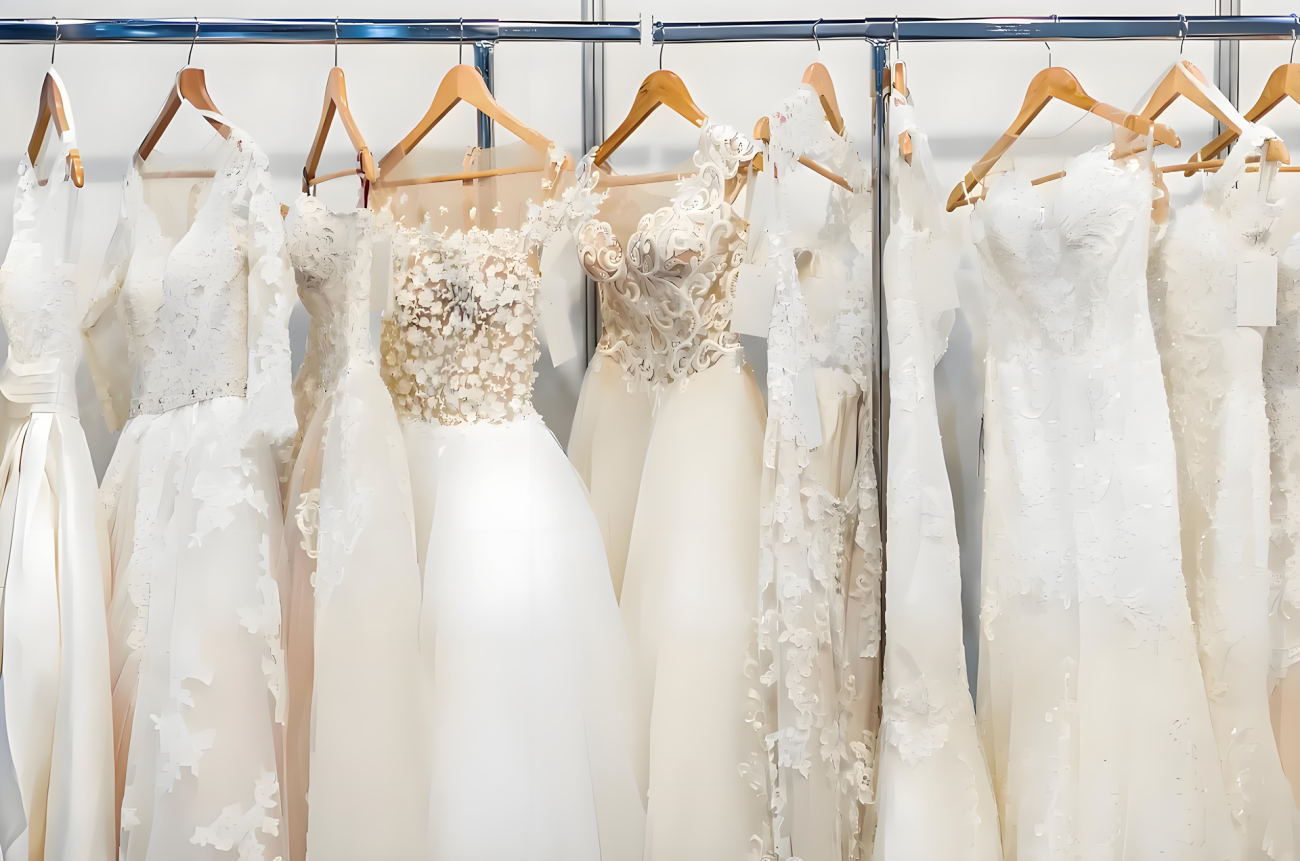
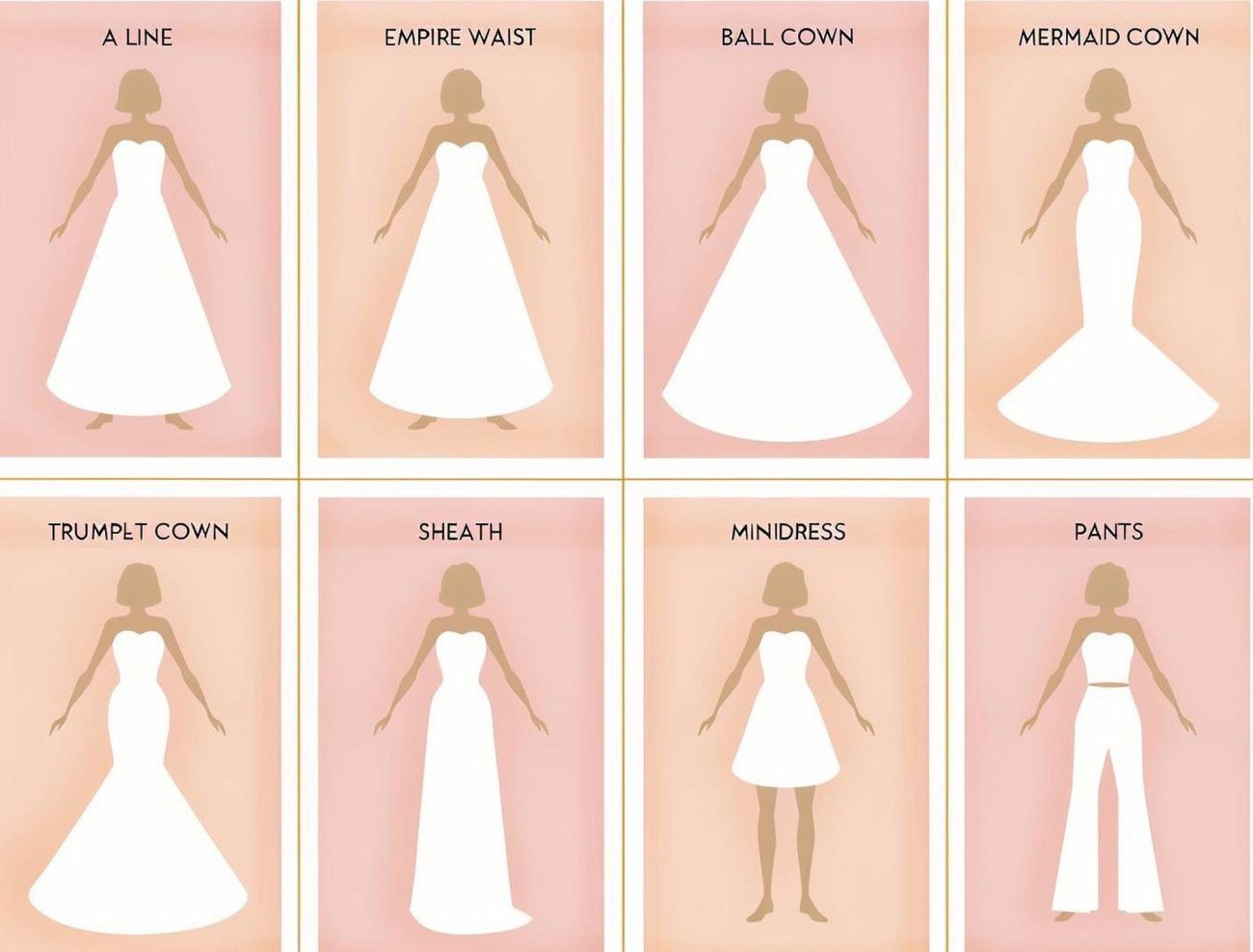
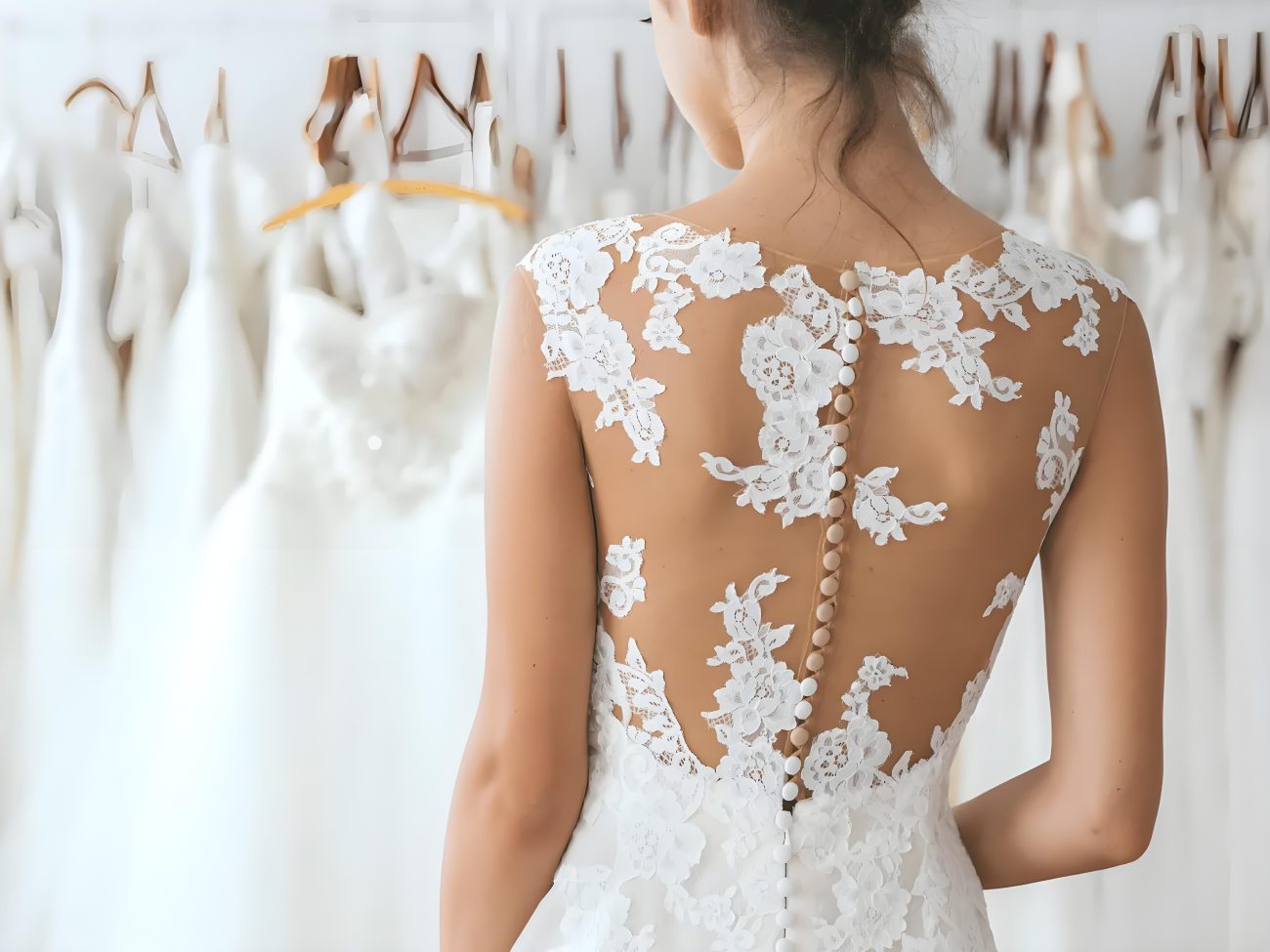
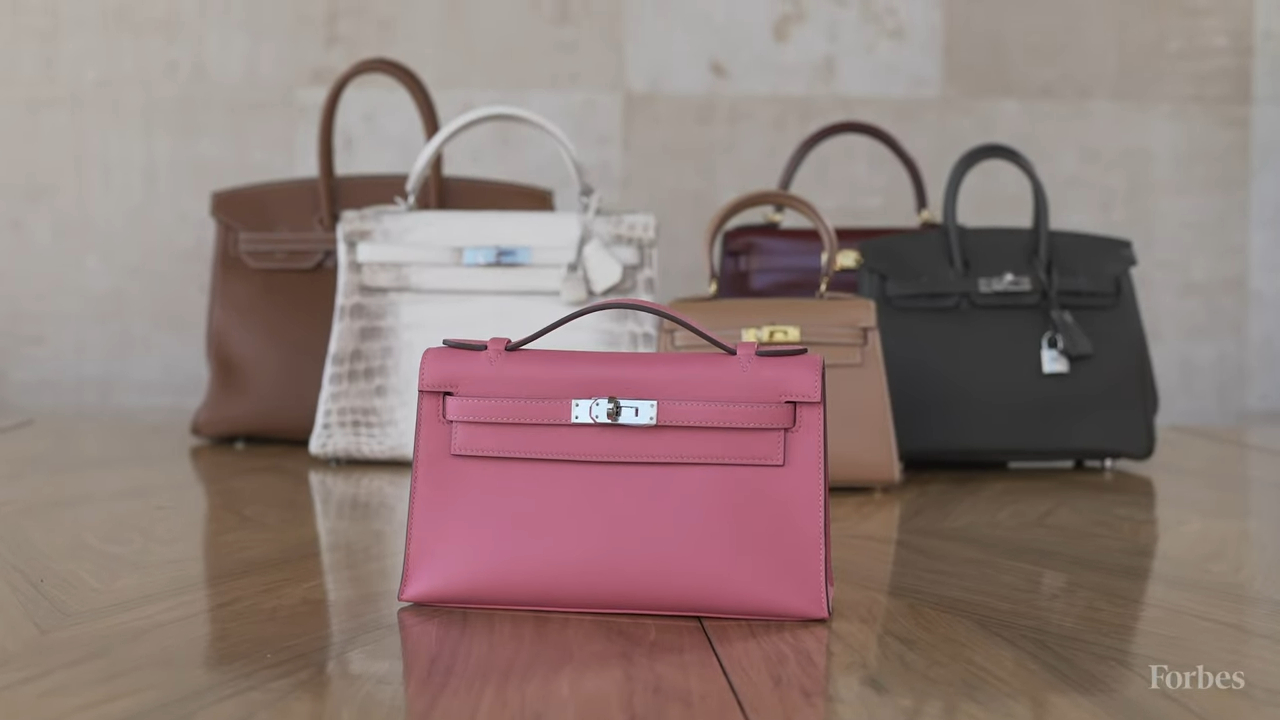
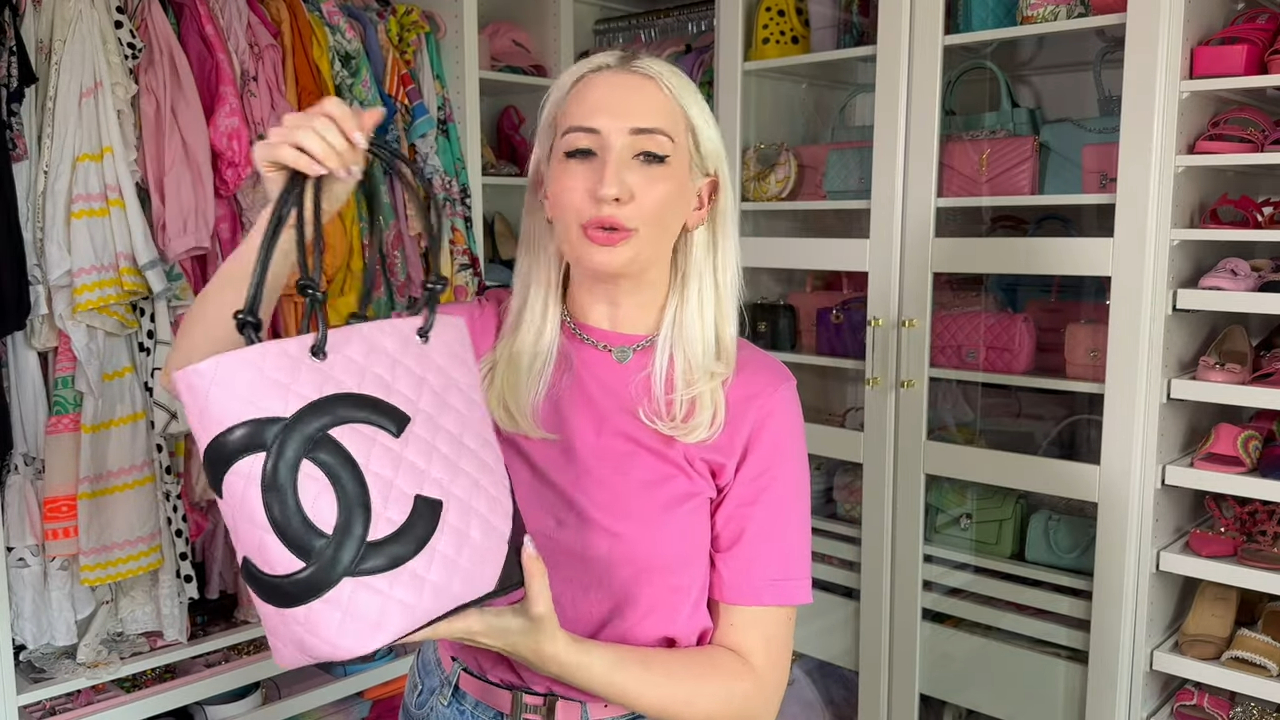
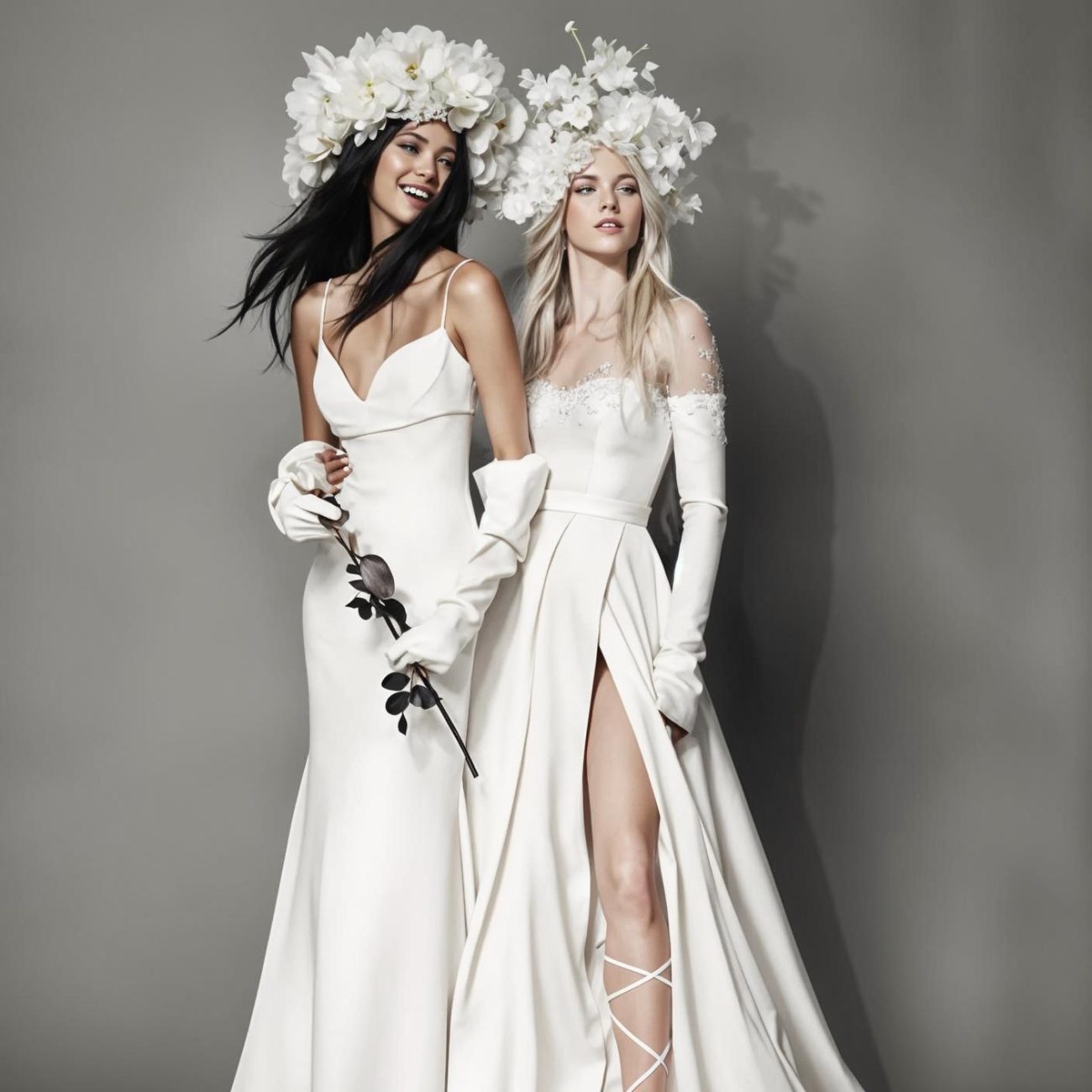
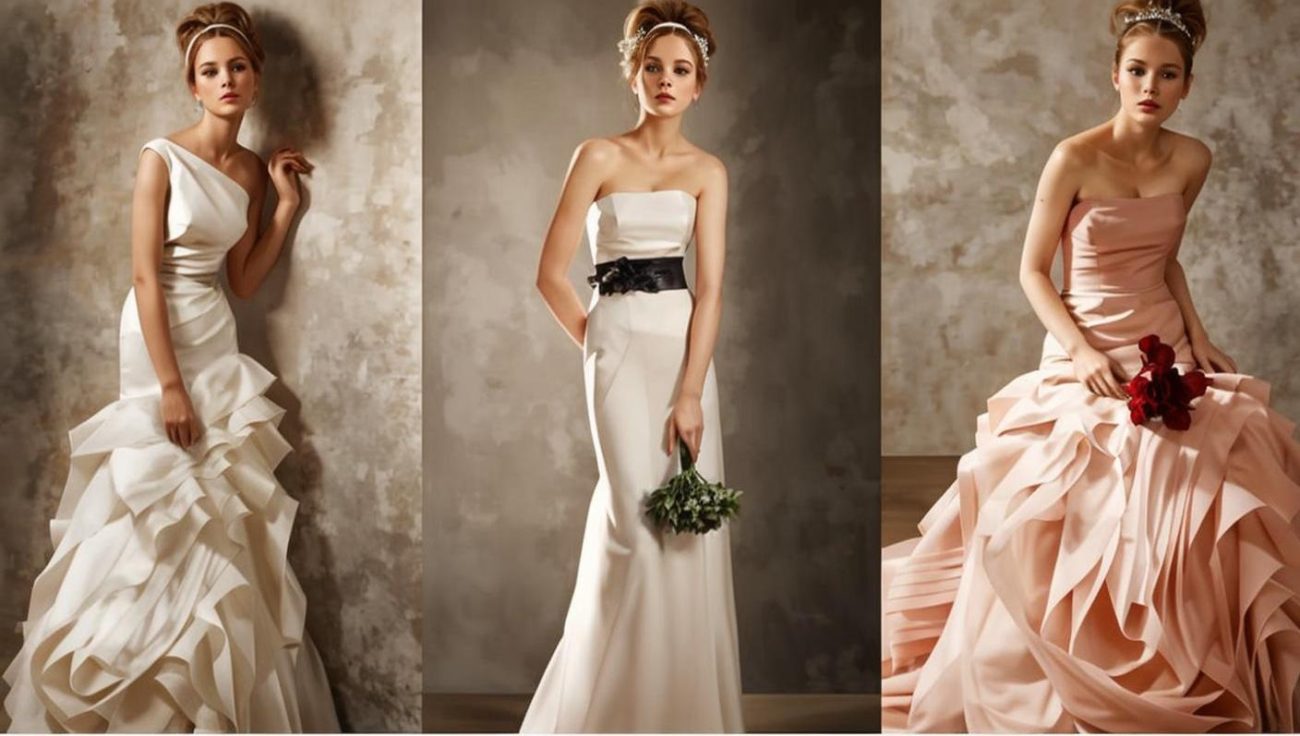
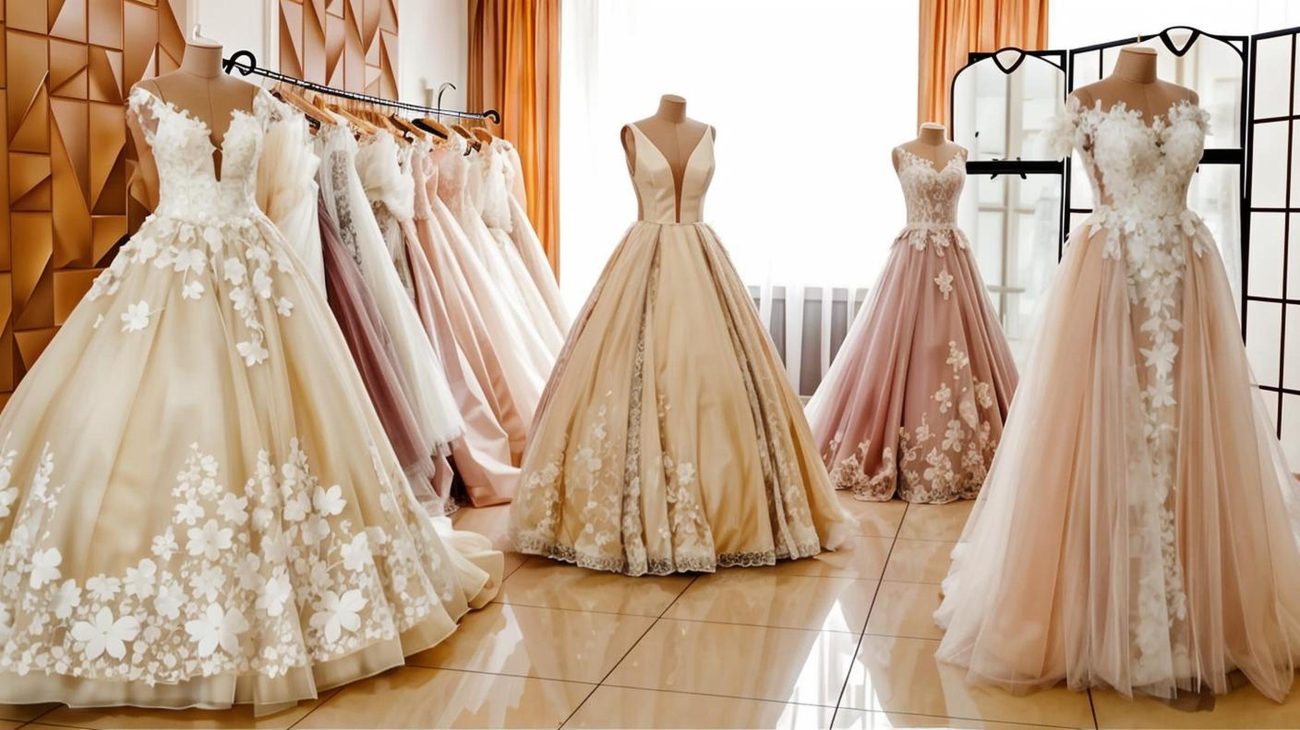

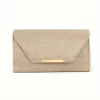
Leave a comment